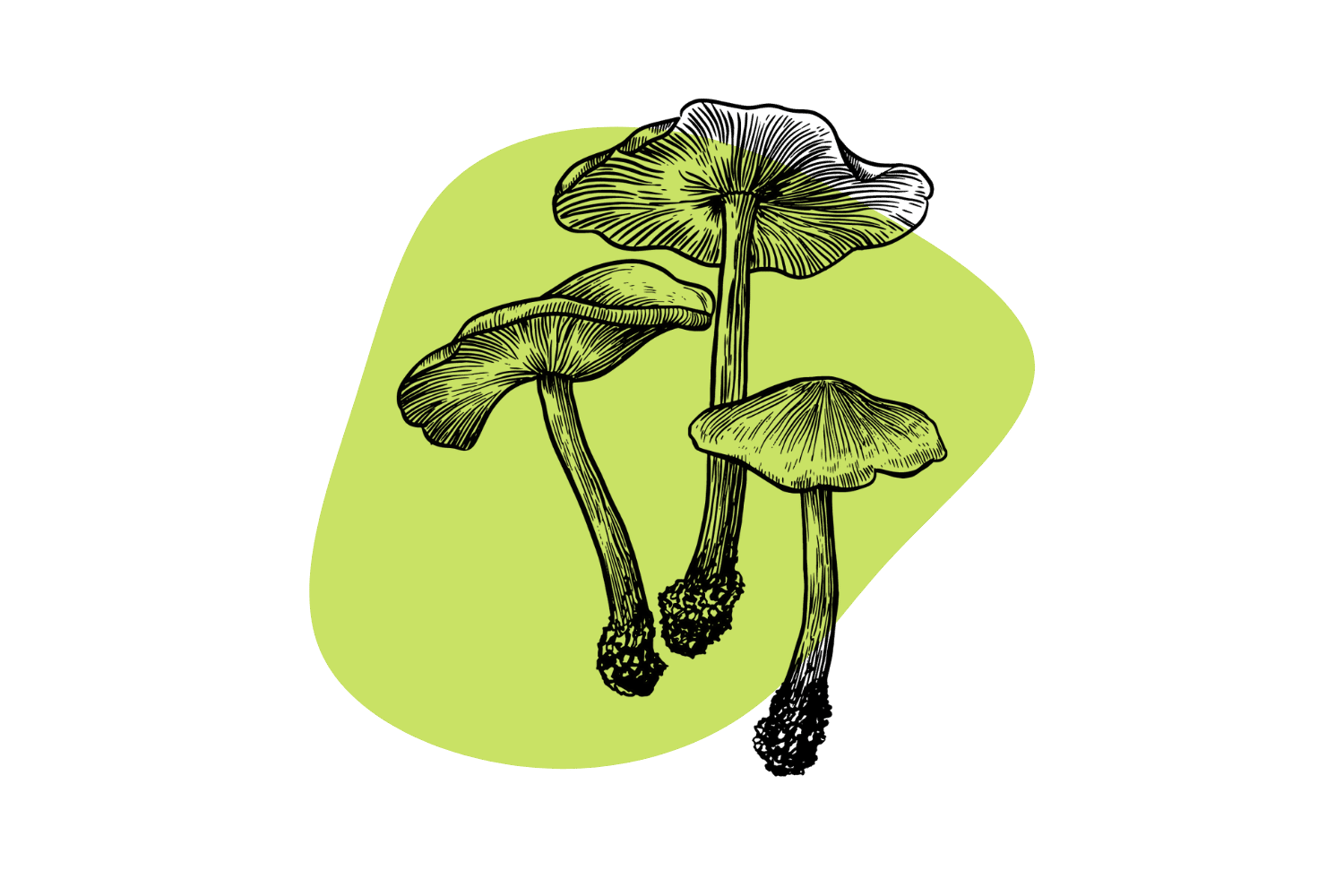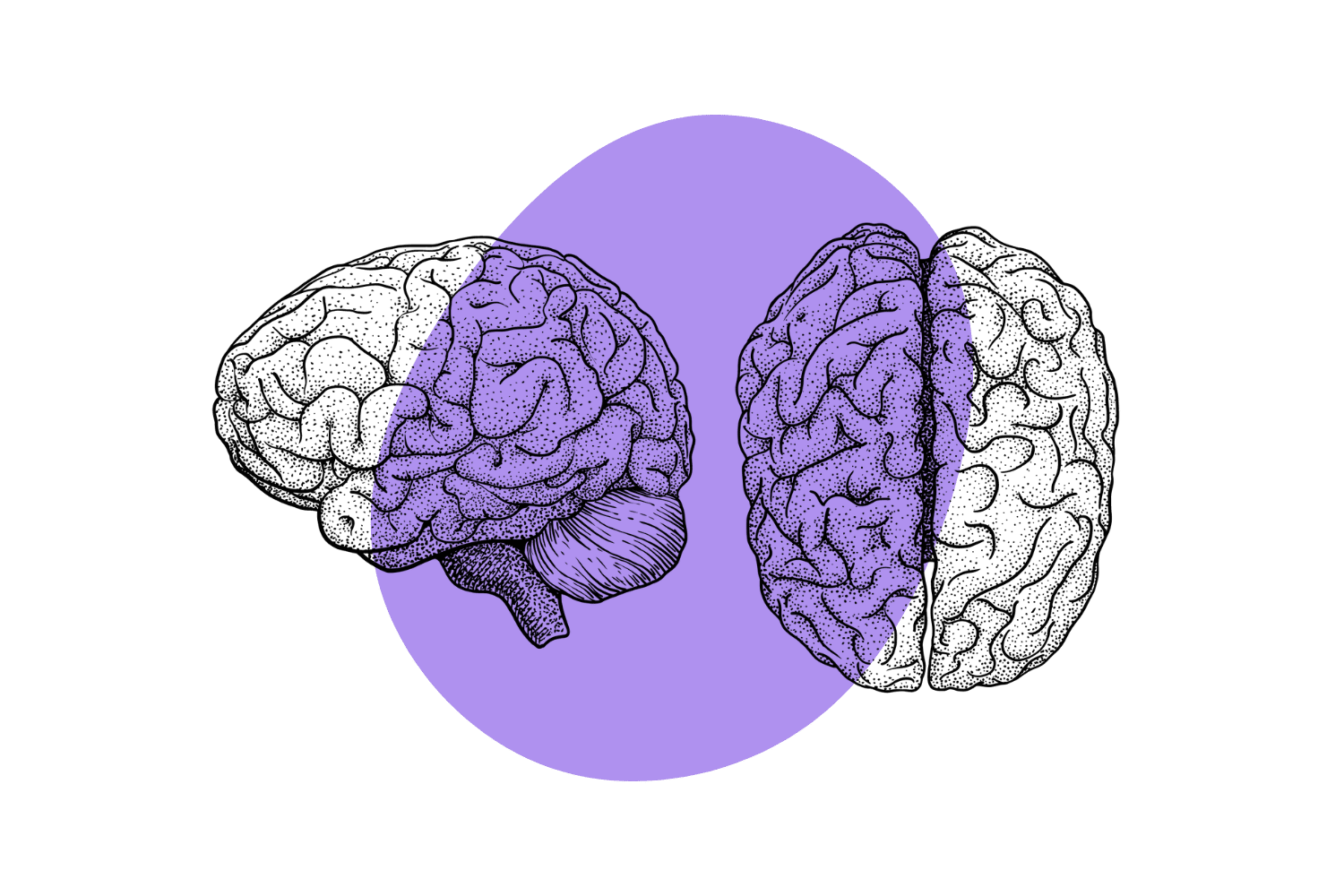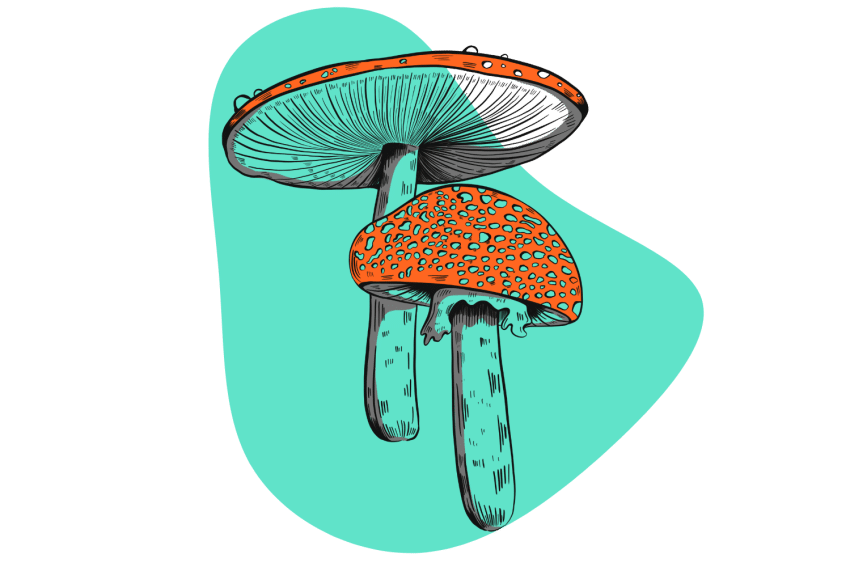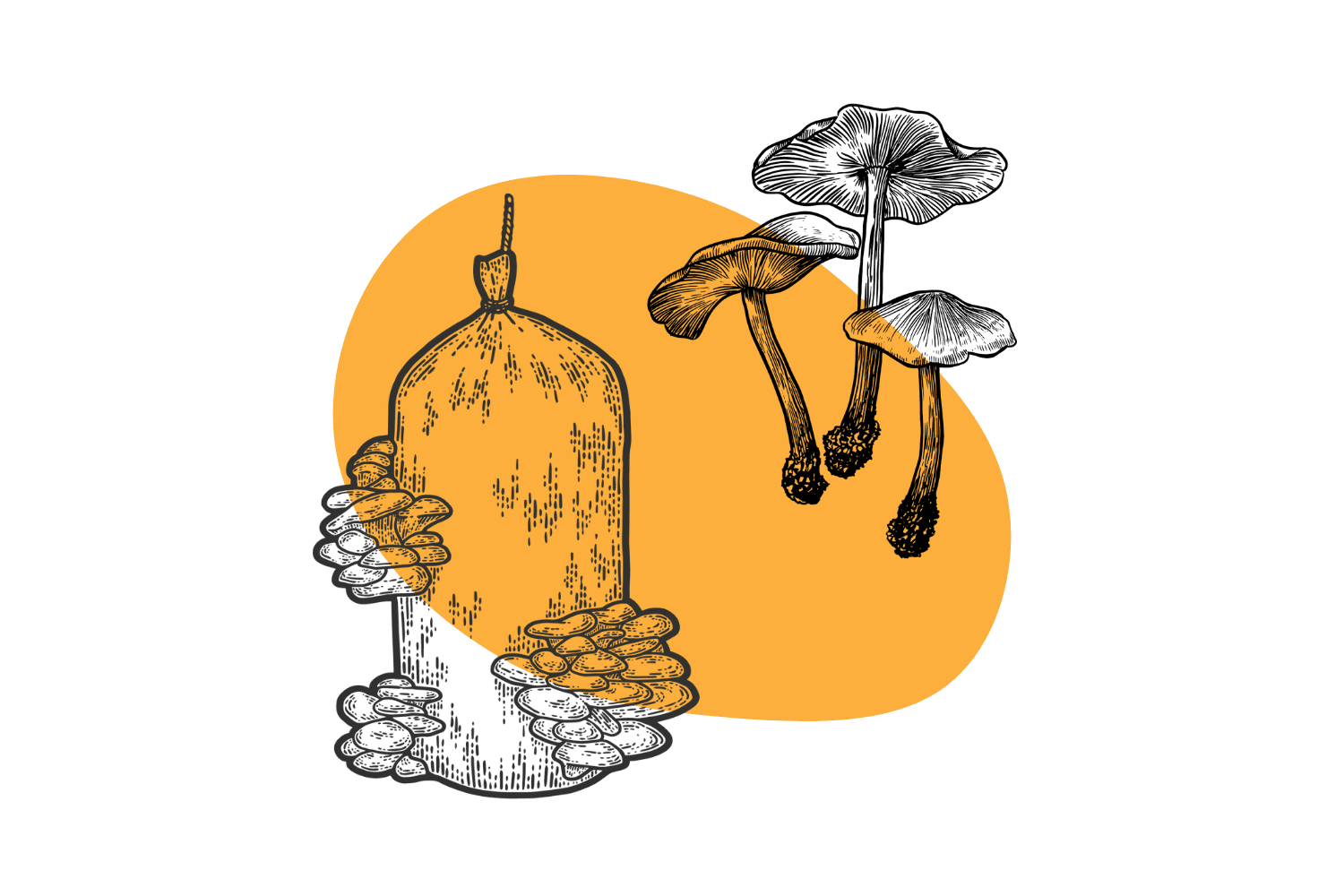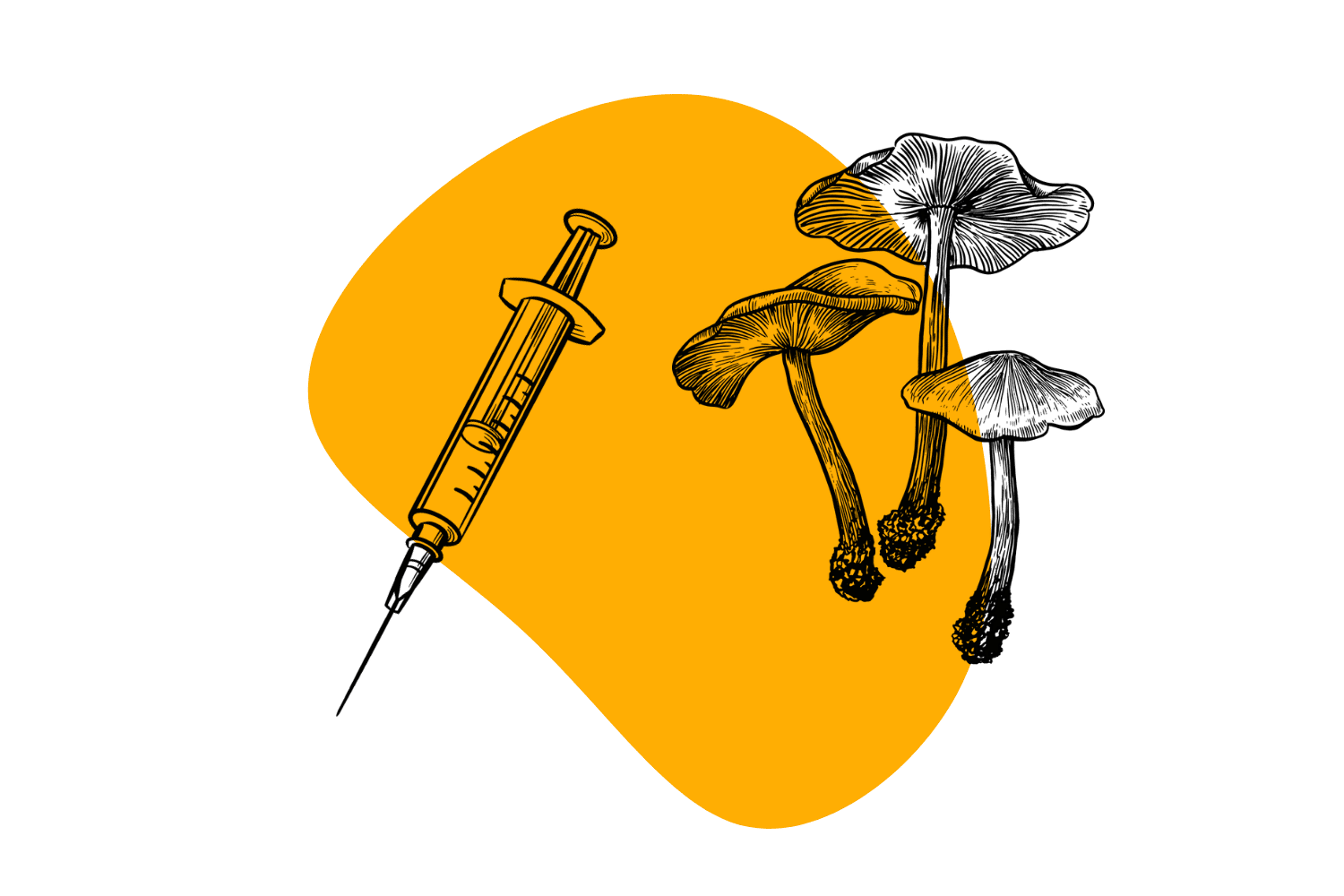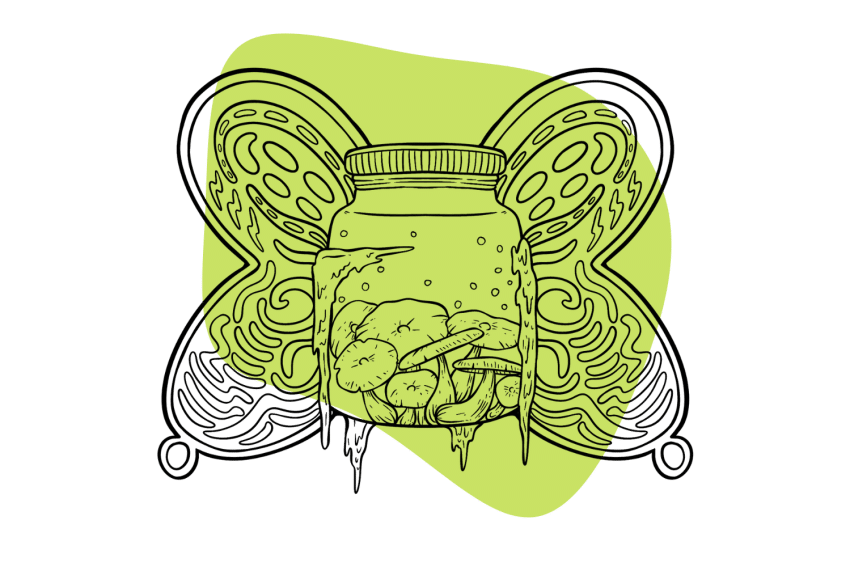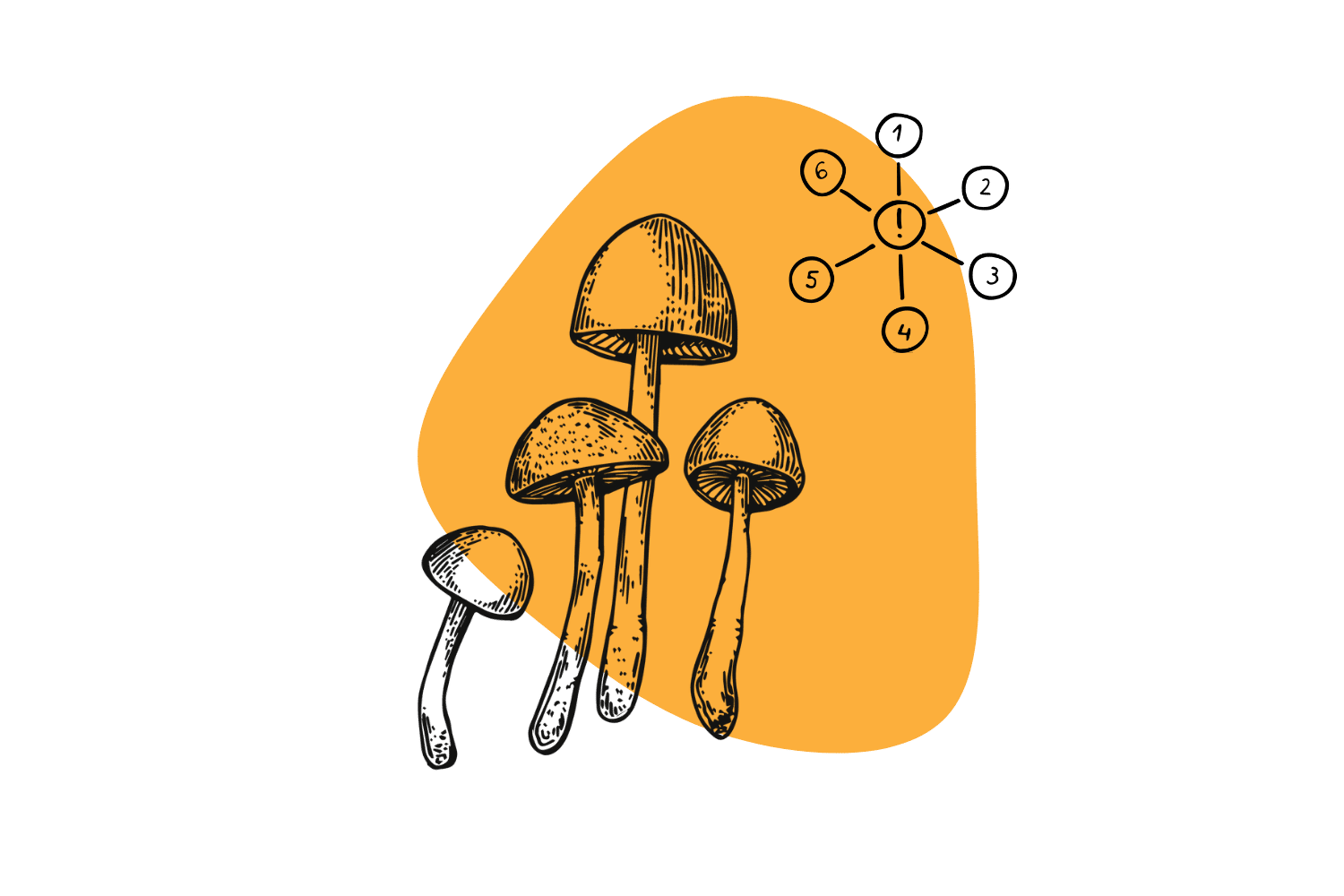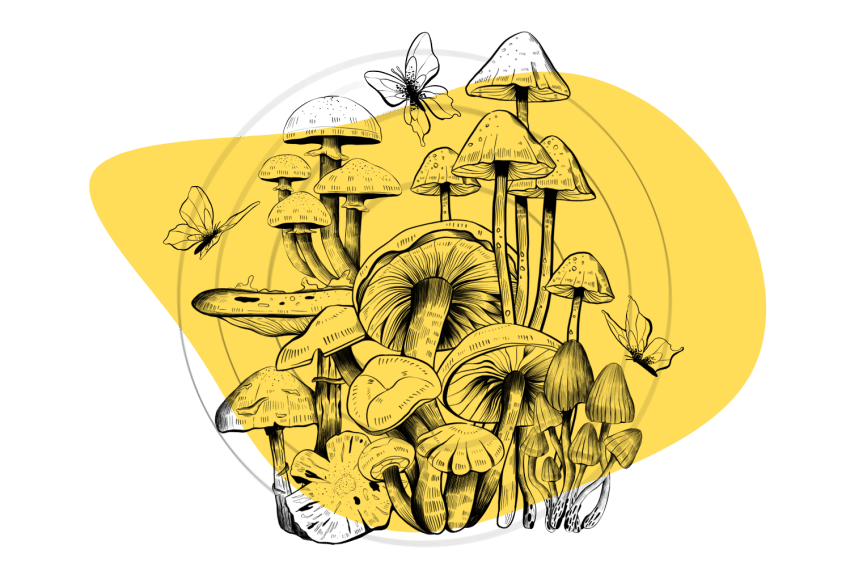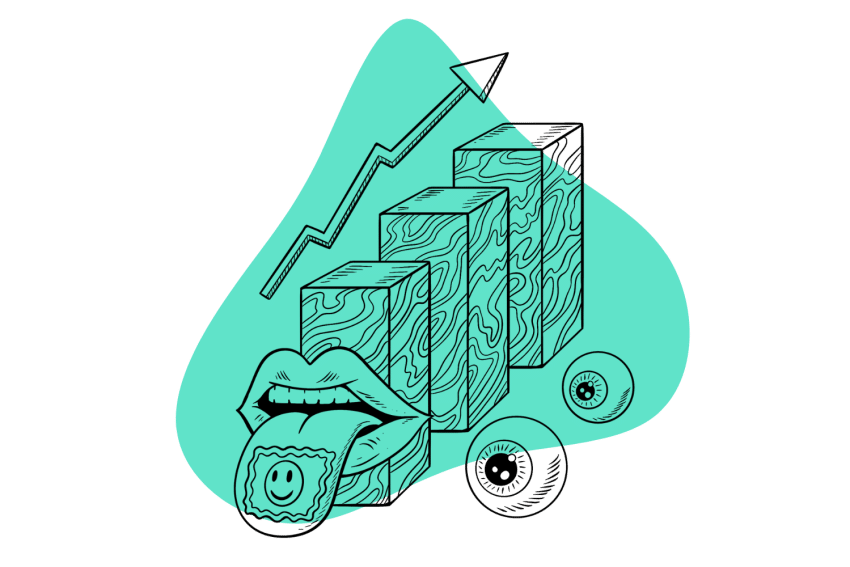Are Magic Mushrooms Safe to Use While Pregnant?
The effects magic mushrooms have on your developing baby’s brain are unknown. So it’s wise to avoid psychedelics of any kind until after you’ve cut the cord.
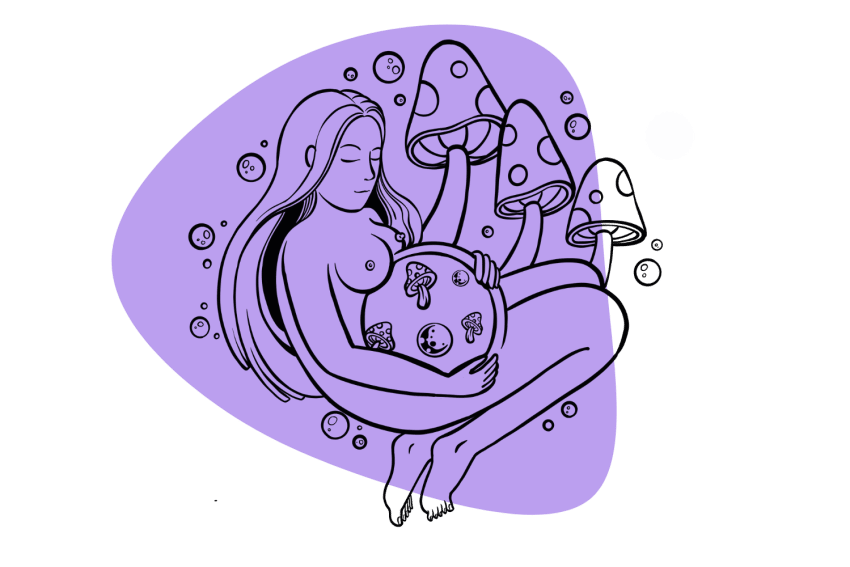
Psilocybin mushrooms are one of the most popular psychedelic substances in the world, but relatively little research has been done to determine the safety of psychedelics on pregnant mothers and their babies.
The general consensus here is to avoid using any psychedelics while pregnant, but there are some examples of indigenous cultures that use them as a natural part of the childbearing process.
Here, we’ll cover why we recommend giving shrooms a pass until you’re done breastfeeding and also offer some examples of cultures that do use psychedelics with proper intention and under the guidance of a trained shaman.
Are Shrooms Safe to Take When You’re Pregnant?
Generally speaking, shrooms are not considered safe during pregnancy. There’s a lot we don’t know about how psychedelic compounds impact the developing brain of a fetus.
Research on the effects of psychedelics on newborns is limited — but there are a few things we know so far:
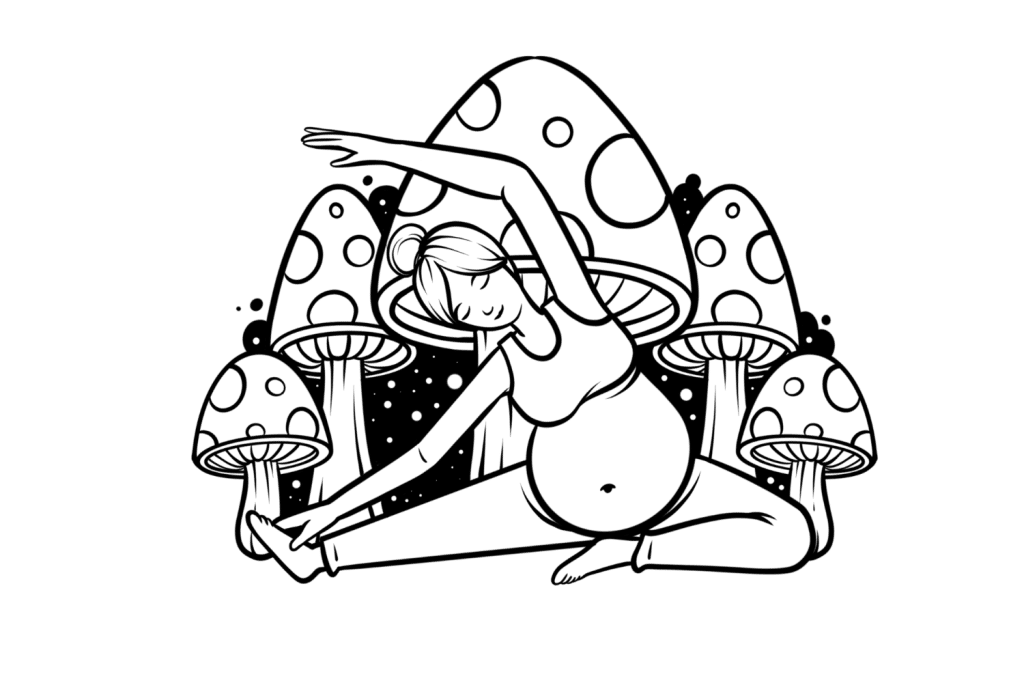
Psilocybin May Reduce Fetal Bloodflow
The best data we have comes from research done on ewe (baby deer) and LSD [1]. This study found a related 5HT2 agonist, LSD (lysergic acid diethylamide), had vasoconstrictive effects on both the uterine arteries and umbilical arteries — potentially leading to compromised blood flow in the fetus.
Magic mushrooms and LSD both share similar vasoconstrictive action, and both are used as treatments for treating cluster headaches because of this effect.
Psilocybin May Have Abortifaciant Qualities
Early studies suggest LSD and other 5HT2 agonists have an oxytocic effect on the uterine tissue of rats [2]. Because of the role oxytocin plays in inducing labor, it’s feared that increased oxytocic activity could lead to premature labor.
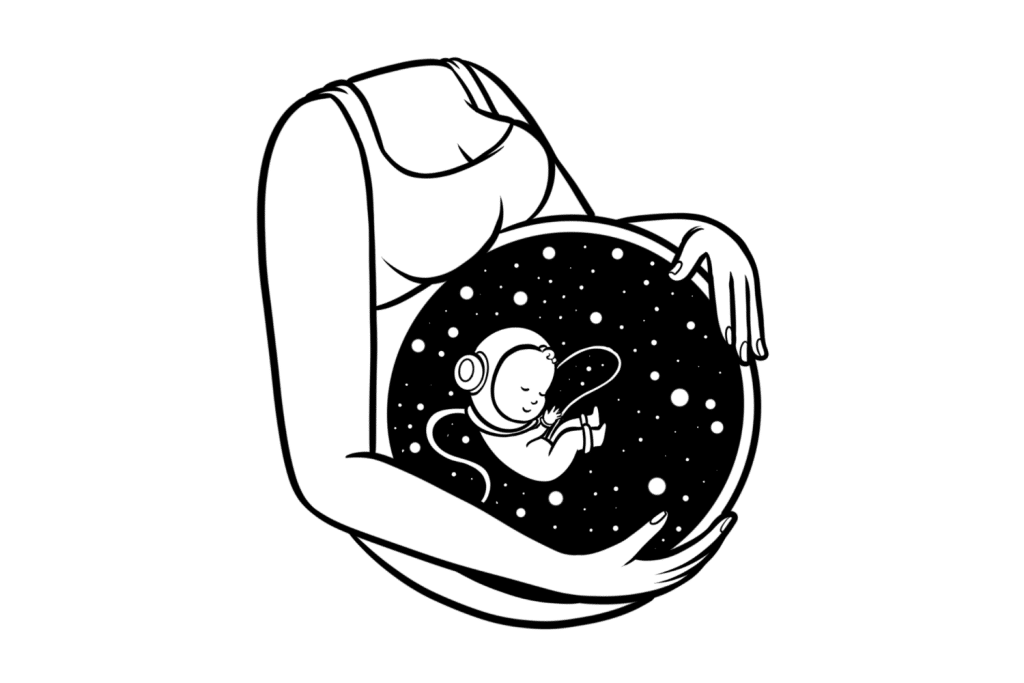
Extreme Exceptions?
Sometimes a pregnant woman has to take certain medications because of extreme circumstances. One example is albuterol. A severe asthma attack limits the mother’s oxygen supply, also greatly reducing the fetus’. If this goes on long enough, she could die, which also puts the fetus at risk. In this case, the dangers of using a small amount of the drug far outweigh the risks of not using it.
Maybe someone with treatment-resistant depression who experiences fewer symptoms (like suicidal ideation) from using shrooms could fall into this category. A small amount goes a long way in many cases. However, it’s impossible to say for sure until we know more. And never make that decision without consulting with your doctor.
Do Shrooms Make Birth Defects More Likely?
There is no research to suggest that taking shrooms while pregnant will increase the likelihood of birth defects or low birth weight.
However, they could theoretically contribute to poor development by obstructing blood flow or promoting early delivery (unconfirmed).
Since there is no human research available to confirm shrooms are safe while pregnant, it’s wise to avoid them entirely throughout your pregnancy.
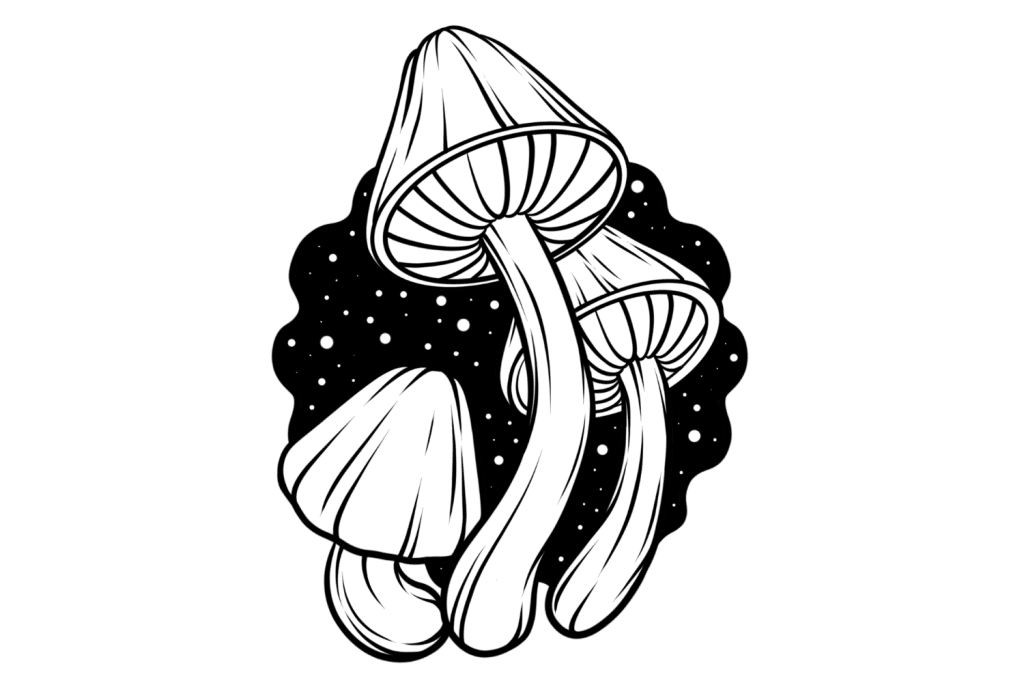
Can You Take Shrooms While Breastfeeding?
Similar to taking shrooms while pregnant, there is almost no research to confirm the safety of taking them while you’re breastfeeding.
Substances you take while breastfeeding can be passed onto your baby through the breastmilk, and this includes psilocybin and psilocin, the two active ingredients in shrooms.
Even in small quantities, these could affect the rapidly developing nervous system of an infant in ways we don’t yet understand.
But there may be a solution.
The half-life of psilocybin is just 3 hours and will only remain detectable in the body for about 24 hours. So you can effectively “bank” breast milk before your trip. After you’ve taken the shrooms, feed your baby your saved breast milk and wait until the psilocybin is completely out of the body before collecting more or breastfeeding directly.
This way the mother is free to explore her psyche without exposing the baby to any mind-altering substances.
Historical Use of Psychedelics Among Pregnant Women
Psychedelic use reaches far back in history, and there are confirmed reports of Native American women using psychedelic compounds like ayahuasca and peyote while breastfeeding. Peyote consumption was believed to increase the quantity and quality of breastmilk available for the baby.
There has been minimal modern research completed on the topic, but one study, in particular, suggests that the psychoactive compound in peyote — mescaline — does, in fact, increase the production of breastmilk [2]. More specifically, prolactin, a key hormone related to breastmilk production, can quadruple in availability in the breastfeeding mother shortly after consuming mescaline.
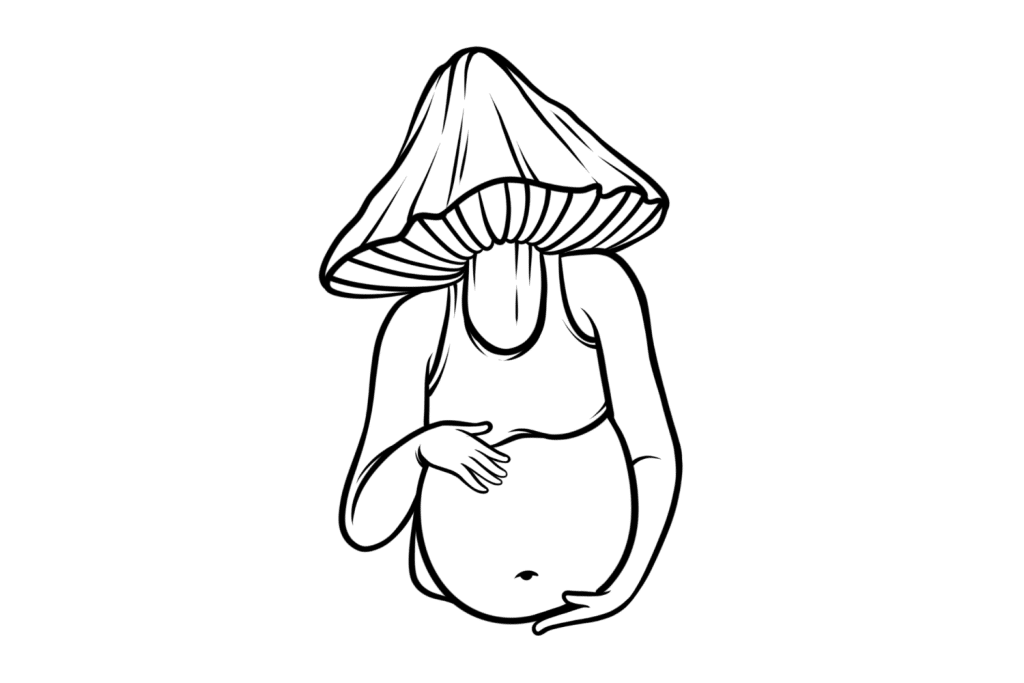
There are also some reports of Native American women consuming peyote to ease childbirth. These claims are unsubstantiated by modern research, but anecdotal reports from centuries ago claim that labor was significantly smoother after consuming peyote. Would it be helpful in today’s culture? Some moms think the idea of tripping during childbirth is horrifying.
Wrapping Up: Are Shrooms Safe While Pregnant?
There is very little research that has been conducted on the safety of taking shrooms while pregnant or breastfeeding. There are anecdotal reports of birth defects, complications with pregnancies, and other issues arising from shroom usage during pregnancy, but none of these have been substantiated.
However, doctors recommend against taking prescription and over-the-counter drugs while pregnant, and they strongly recommend against using any illegal substances while pregnant or breastfeeding. Psilocybin and psilocin could make their way to the baby via the umbilical cord or the breastmilk, so it’s always better to avoid drug use from the start of your pregnancy until you finish breastfeeding.
References
- Zhang, L., & Dyer, D. C. (1993). Lysergic acid diethylamide is a partial agonist at 5-HT2 receptors in the ovine uterine artery during late pregnancy. European journal of pharmacology, 230(1), 115-117.
- Hashimoto, H., Hayashi, M., Nakahara, Y., Niwaguchi, T., & Ishii, H. (1977). Actions of D-lysergic acid diethylamide (LSD) and its derivatives on 5-hydroxytryptamine receptors in the isolated uterine smooth muscle of the rat. European Journal of Pharmacology, 45(4), 341-348.
- Demisch, L., & Neubauer, M. (1979). Stimulation of human prolactin secretion by mescaline. Psychopharmacology, 64(3), 361-363.

